Why the film "Only Girls in Jazz" is black and white
Most viewers do not ask this question at all - the film is old, therefore it is black and white. But this is a delusion. By the time this picture was filmed in the United States, there was no shortage of color film, and color cinema was no longer a curiosity. So the film "Not Today, Josephine" - that's what it was originally going to be called - was planned to be shot in color.

This was also required by the contract of Marilyn Monroe, the performer of the main female role. She had to act only in color pictures - this was the condition of the Fox studio, which "owned" the actress.
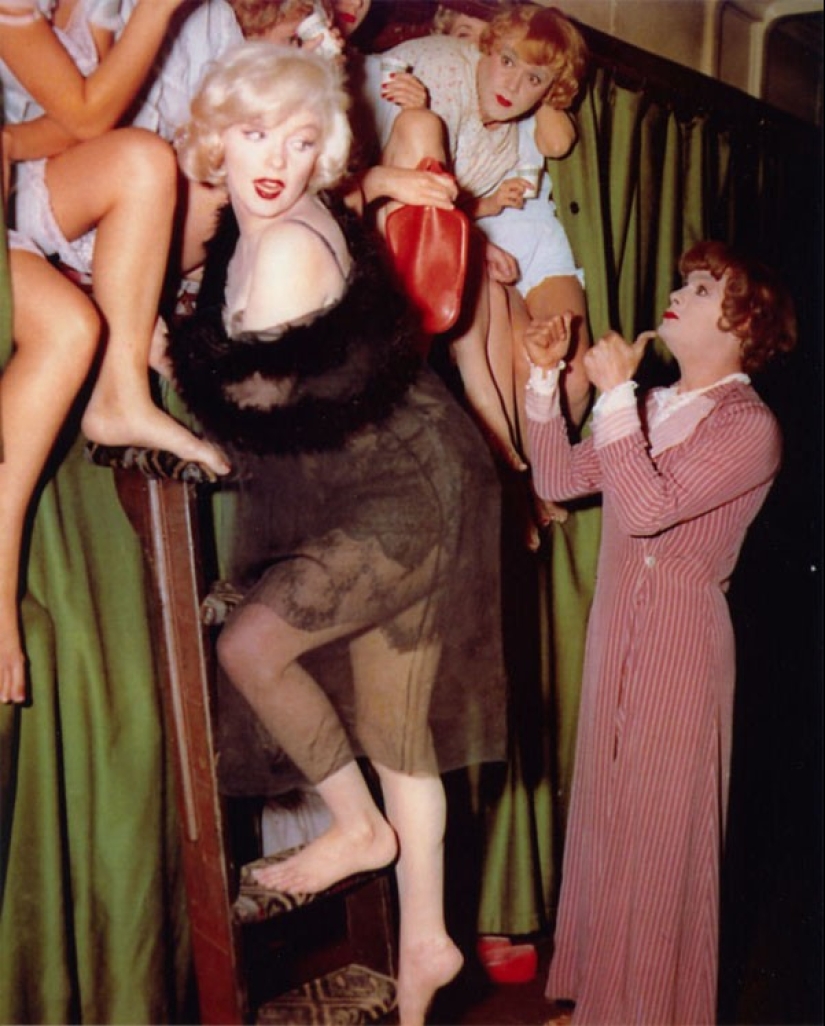
But director Billy Wilder did not like color films, preferring the good old black and white. And the plot itself, which they came up with with screenwriter Easy Diamond, simply required the film to be stylized as pre-war gangster films.
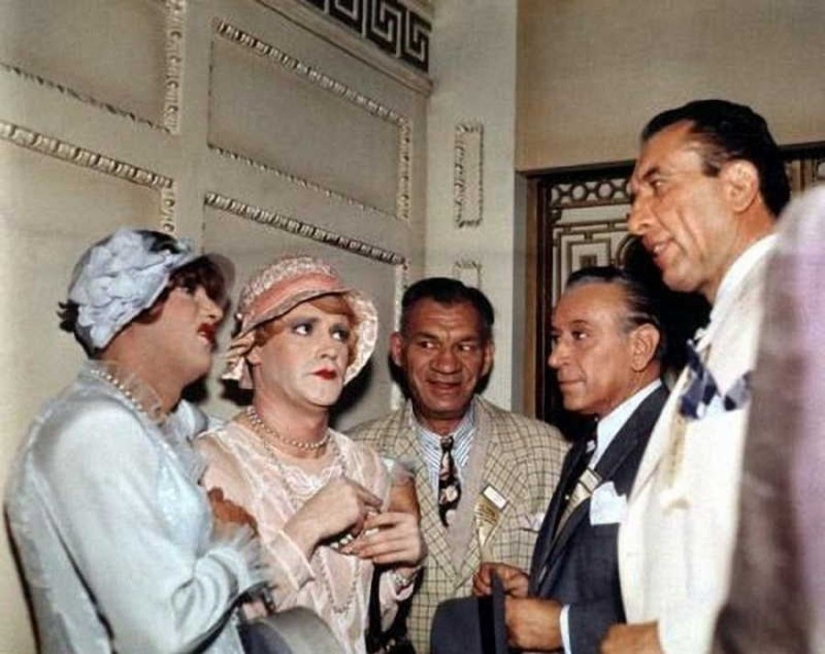
But there was another problem - makeup. After the very first color screen tests, the cosmetics of Josephine and Daphne turned out to be too “heavy” and gave out a too noticeable and indestructible green tint on the film.
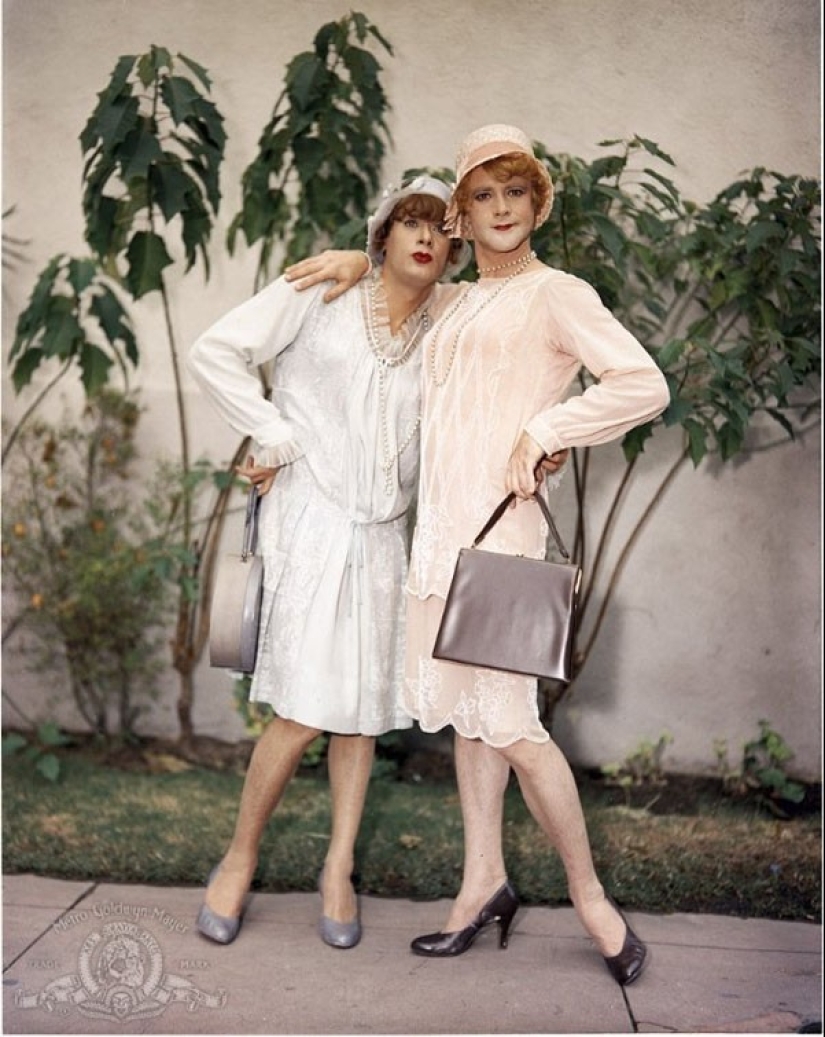
In order for the actors Jack Lemmon and Tony Curtis to get used to the images of women, wear dresses, walk in heels correctly, acquire a feminine gait and gestures, a well-known female impersonator, transvestite Barbet (Babette) was specially invited by the film company from Berlin.
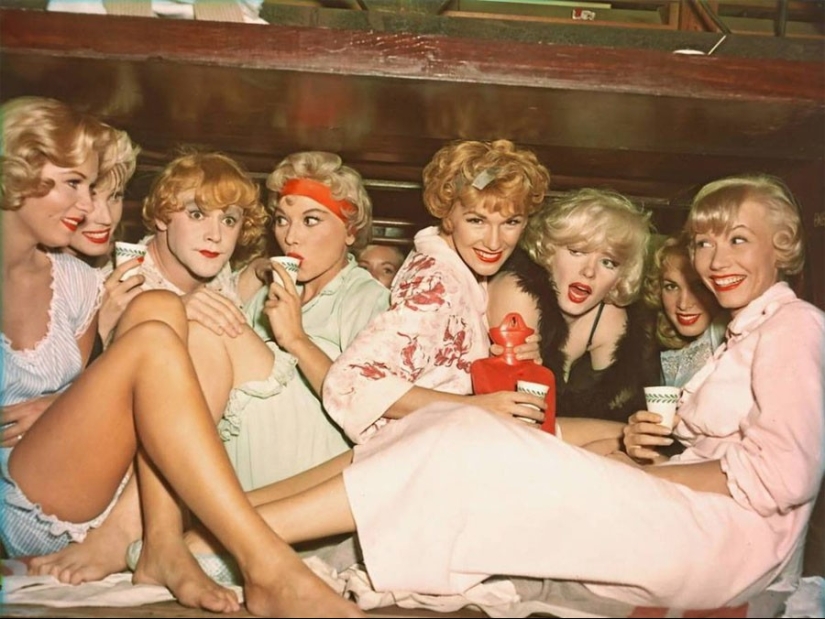
The very first classes with Curtis went well - he effectively looked prim Josephine, although he was internally extremely constrained, which could not be said about his colleague - Lemmon. Here it was the opposite: “Daphne” did not feel any embarrassment either from the dress or from the makeup, “she” freely walked around the studio in this form and behaved as if she had worn dresses all her life.

All attempts to teach Lemmon to look like a real woman were unsuccessful.
To which Jack stated:
The film's director Billy Wilder supported Lemmon's line. Frustrated, Babette left the filmmakers after three days.
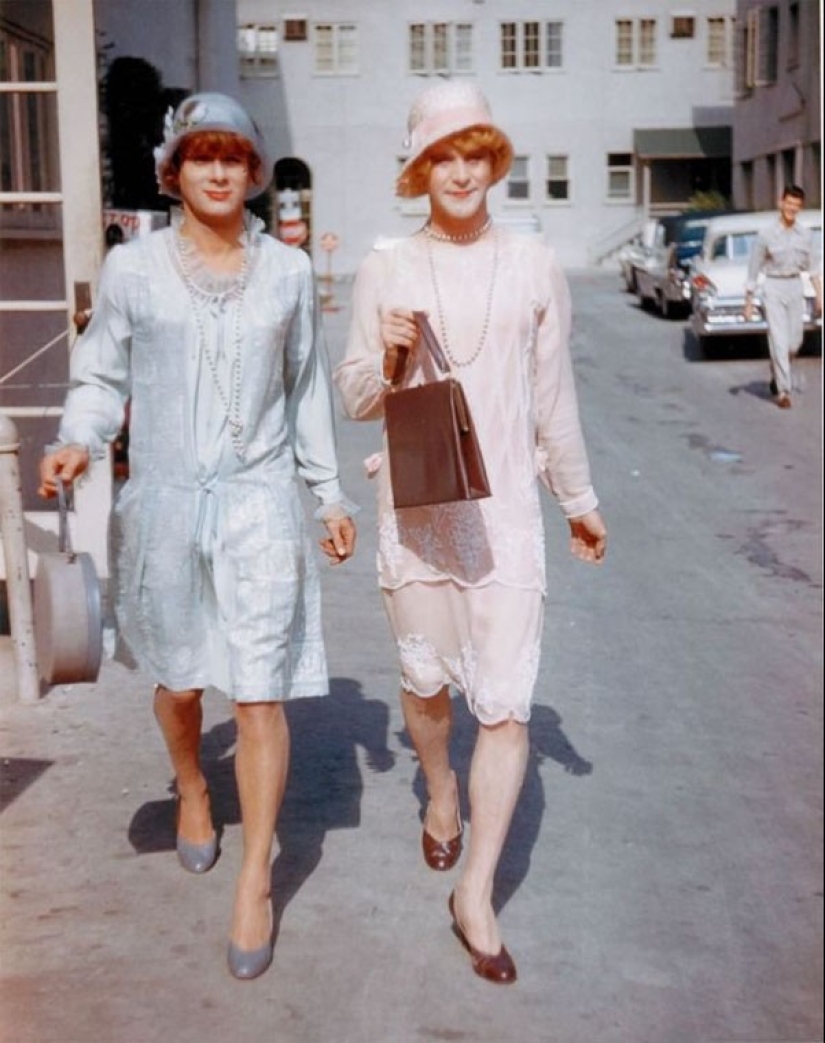
Picking up makeup and makeup, putting on wigs, dressing in dresses, putting on hairpins, the merry fellow Lemmon suggested that Curtis arrange an exam:
If in the premises of their pavilion they were still more or less recognized, then in the ladies' room of someone else's pavilion the situation has changed. The actors went to the mirrors and began to tint their lips and draw eyelashes. The dancers passing by, without suspecting anything, even asked in which movie the “girls” were filming.

Satisfied with the "exam," Josephine and Daphne appeared to Billy Wilder. The director looked at the beaming Curtis and Lemmon and was pleased:
And at that moment, Wilder realized that the film would definitely not be in color. And ... was delighted.

Wilder managed to bypass the contract - he explained to Monroe that men, made up as women, in color do not look like a comic couple, but like "two painted green gays." Seeing the samples, the actress "horrified" immediately agreed to a black and white version.

Well, we're only left with some color shots from the shoot so we can see what Some Like It Hot would look like in color.

Recent articles

It's high time to admit that this whole hipster idea has gone too far. The concept has become so popular that even restaurants have ...

There is a perception that people only use 10% of their brain potential. But the heroes of our review, apparently, found a way to ...

New Year's is a time to surprise and delight loved ones not only with gifts but also with a unique presentation of the holiday ...